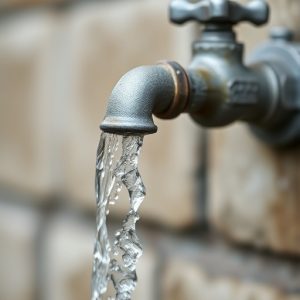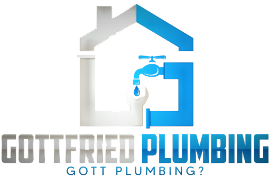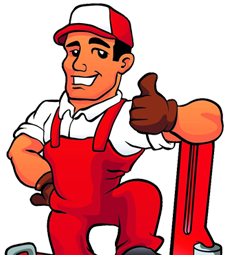Winter in Boerne may not bring heavy snow, but the occasional frost can still take a toll on your home’s plumbing. Frozen pipes, unexpected leaks, and damaged fixtures are just a few of the issues that can arise if your plumbing isn’t ready for the colder months. The good news? With a little preparation, you can shield your home from costly repairs and enjoy a worry-free season.
In this post, we’ll guide you through the steps to winterize your plumbing in Boerne, TX. Let’s get your home winter-ready with proactive care that protects your plumbing and peace of mind.

1. Insulate Unheated Areas Before Winter
Unheated areas in your home, such as crawl spaces, basements, and garages, are particularly vulnerable to freezing temperatures. Pipes in these spaces are often exposed to cold air, making them prone to freezing and bursting during the winter. Insulating these areas will safeguard your plumbing system.
Start by wrapping exposed pipes with foam pipe insulation or heat tape to maintain a stable temperature and prevent freezing. For added protection, use heat cable along with pipe insulation in particularly cold regions. If your crawl space or basement has vents, consider sealing them temporarily to limit cold air entry. Additionally, check for drafts around doors or windows near unheated areas and seal gaps with weatherstripping or caulk.
2. Drain Outdoor Faucets to Prevent Freezing in Winter
Let outdoor faucets drip to prevent freezing. This small, steady flow keeps water moving, reducing the risk of ice blockages that can lead to pipe bursts.
Focus on faucets on exterior walls, as these are most exposed to cold temperatures. A pencil-thin stream of water is sufficient, as running a full flow is unnecessary. Additionally, open the cupboard doors under sinks to let warm air circulate the pipes for added protection.
3. Seal Drafts and Gaps Around Plumbing to Avoid Frozen Pipes
Cold air seeping through cracks and gaps near your plumbing can increase the risk of frozen pipes. Inspect areas around doors, windows, and walls where drafts are most likely to enter. Pay close attention to spaces near unheated areas like basements or crawl spaces.
Seal these openings using weatherstripping, caulk, or foam sealant. For larger gaps, use spray foam insulation or concrete to prevent cold air from seeping in.
4. Disconnect Garden Hoses to Protect Outdoor Plumbing
Forgetting to disconnect garden hoses during winter can lead to unexpected plumbing damage. Any water trapped in hoses or outdoor faucets can freeze, expand, and cause cracks in the hose or faucet connections.
To prevent these issues, disconnect all garden hoses from outdoor faucets as winter approaches. Drain the hoses thoroughly to remove any leftover water, ensuring no freezing occurs inside. Once drained, store the hoses in a dry, sheltered area such as a shed or garage to keep them safe from freezing temperatures and prolong their lifespan.
After disconnecting the hoses, insulate outdoor faucets to shield them from frost. Use foam covers or wrap the faucets with insulating materials like rags or plastic wrap. Secure them with duct tape.
5. Maintain Consistent Indoor Temperature in Winters
Keeping your home consistently warm is one of the easiest ways to protect your plumbing during cold weather. Set your thermostat to a minimum of 55°F (13°C) at all times, even when you’re away, to prevent pipes from freezing. Avoid large temperature drops and maintain a steady warmth to reduce the risk of freezing in unheated or vulnerable areas. If you plan to be away during a freeze, leave the heating system running to keep your pipes safe.
6. Prepare Outdoor Plumbing Systems for Freezing Temperatures
Outdoor plumbing systems, including irrigation lines, sprinkler systems, and outdoor faucets, are highly susceptible to freezing temperatures. Preparing these systems before winter can save you from costly repairs when the weather warms up.
Start by shutting off the water supply to your irrigation system. Drain the pipes, valves, and sprinkler heads to remove all remaining water. For added protection, use compressed air to blow out any moisture that could freeze and cause damage. Insulate exposed components like backflow preventers, above-ground pipes, and valves with foam covers or insulation tape.
Outdoor faucets should also be drained and covered. To prevent cracking, disconnect garden hoses, drain them thoroughly, and store them in a dry area before winter arrives. You should also cover outdoor faucets with foam covers or wrap them with insulating materials to protect them from frost.
7. Prepare Water Heater for Reliable Performance in Winters
As the temperature drops, your water heater becomes even more important. Preparing it for winter ensures consistent performance and energy savings.
Start by flushing your water heater to remove sediment buildup that reduces heating efficiency. Check the temperature setting and keep it at an optimal level, usually around 120°F, to balance performance and safety. Inspect the unit for signs of wear, such as leaks or rust, and replace the anode rod if necessary to prevent tank corrosion.
If your water heater is in an unheated area, consider insulating it with a water heater blanket to reduce heat loss. Insulating the pipes connected to the unit can also help retain heat, reducing energy consumption.
8. Locate and Test Your Main Water Shutoff Valve
Be familiar with the location of your main water shutoff valve. This will help shut off the water quickly in case of a burst pipe.
To find the valve, check areas like the basement, crawl space, or utility room, typically near where the main water line enters your home. Once located, test the valve to ensure it functions properly. Turn it off and back on to confirm it moves freely and stops the water flow. If the valve is difficult to operate or doesn’t close completely, consider replacing it or having it serviced by a professional plumber.
Prepare Your Plumbing for Winter with Gottfried Plumbing
Winter in Boerne can be unpredictable, but your plumbing doesn’t have to be. At Gottfried Plumbing, we specialize in helping Boerne homeowners safeguard their plumbing systems against the challenges of colder months.
Our experienced team provides solutions that prevent common winter plumbing issues, such as frozen pipes and unexpected leaks. With our expertise, you can rest easy knowing your plumbing is prepared to handle even the coldest days.
Call 830-331-2055 today to schedule a winter plumbing inspection with Gottfried Plumbing in Boerne, TX. We’re available 24/7 to ensure your home stays protected throughout the season.

